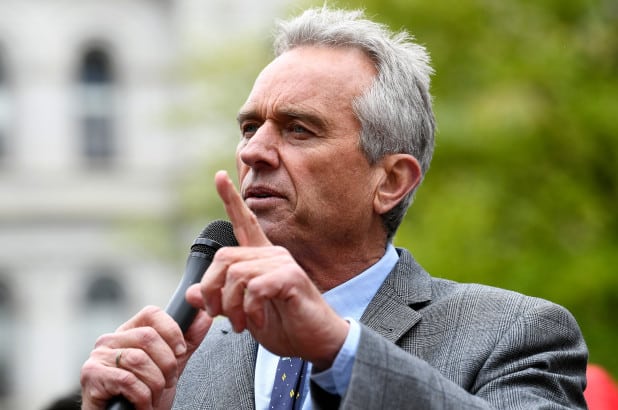The American Academy of Pediatrics (AAP) has long been an adamant pusher for children in America to be given an increasingly long list of shots at an early age as laid out in the childhood vaccine schedule of the Centers for Disease Control and Prevention (CDC). Indeed, as I wrote about recently, the AAP last month took another step forward in its relentless shots pushing. It advocated in a new policy statement the elimination of nearly all exemptions to vaccine mandate laws parents can obtain so their children may attend daycares and schools without being injected with each and every shot on a one-size-fits-all list.
In regard to vaccines, the AAP exhibits antipathy to the doctor-patient relationship producing medical decisions taken by patients based upon informed consent and consideration of advice tailored to the unique needs and situation of each patient. This is peculiar given that the AAP presents itself as a membership organization comprised of 67,000 pediatricians.
On Tuesday, the AAP published its own childhood vaccine schedule that, unlike in the past, sharply diverges from that of the CDC. The AAP schedule calls for much more expansive giving of coronavirus “vaccines” to children than does the CDC that curtailed such recommendations earlier this year. Notably the CDC’s change brings it closer to coronavirus shots recommendations of many other countries but still far short of the state of Florida that has recognized that the shots carry risks outweighing benefits for everyone.
In response to the AAP’s action on Tuesday, United States Department of Health and Human Services (HHS) Secretary Robert F. Kennedy, Jr., who oversees the CDC, challenged the AAP. In particular, Kennedy suggested that AAP’s actions may be based more on pleasing pharmaceutical companies that are its big financial donors than on doing what is best for children in America. Above a screenshot from the AAP website listing pharmaceutical companies Merk, Moderna, Pfizer, and Sanofi as top AAP donors, Kennedy posted Tuesday at his Twitter page the following:
This is a screenshot from American Academy of Pediatrics’ webpage, thanking the organization’s top corporate donors. These four companies make virtually every vaccine on the CDC recommended childhood vaccine schedule. AAP is angry that CDC has eliminated corporate influence in decisions over vaccine recommendations and returned CDC to gold-standard science and evidence-based medicine laser-focused on children’s health.
AAP today released its own list of corporate-friendly vaccine recommendations. The Trump Administration believes in free speech and AAP has a right to make its case to the American people. But AAP should follow the lead of HHS and disclose conflicts of interest, including its corporate entanglements and those of its journal—Pediatrics—so that Americans may ask whether the AAP’s recommendations reflect public health interest, or are, perhaps, just a pay-to-play scheme to promote commercial ambitions of AAP’s Big Pharma benefactors.
AAP should also be candid with doctors and hospitals that recommendations that diverge from the CDC’s official list are not shielded from liability under the 1986 Vaccine Injury Act.
These comments by Kennedy are significant. For a long time, HHS has worked hand in hand with Big Pharma, as well as medical industry organizations including the AAP, to push drugs on Americans through the CDC’s childhood vaccine schedule and other mechanisms. Kennedy’s strongly worded tweet suggests that, at least as long as he is in charge at HHS, this automatic team effort is over. We’ll see if Kennedy is able to stick around through the remainder of Donald Trump’s presidential term, and maybe beyond, and lead HHS in a direction independent of that sought by the continuing collaboration of pharmaceutical companies and medical organizations.

